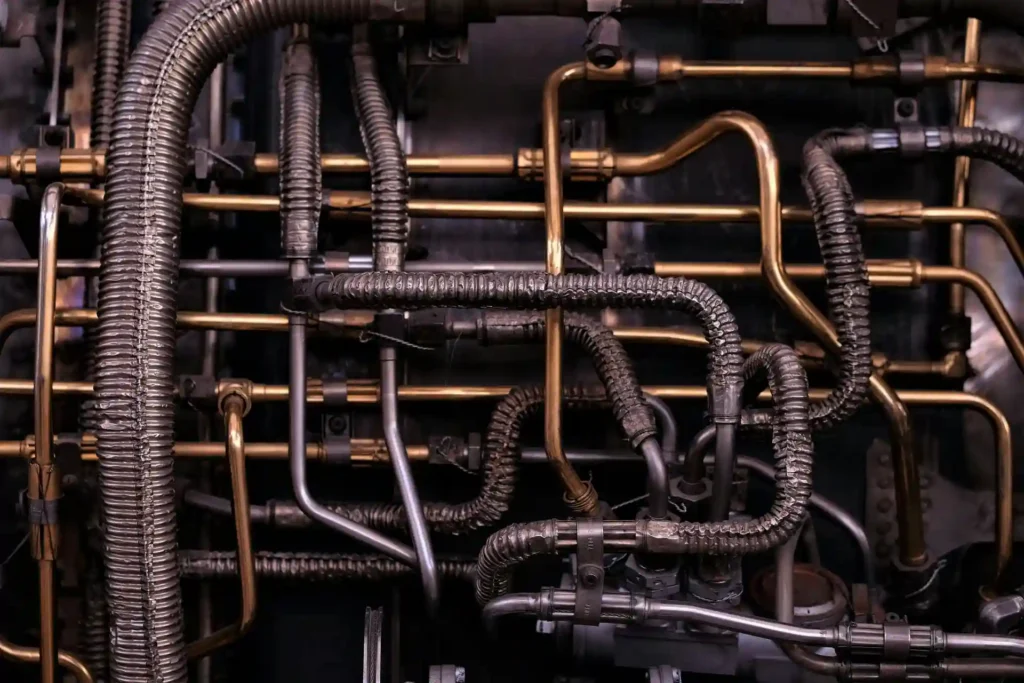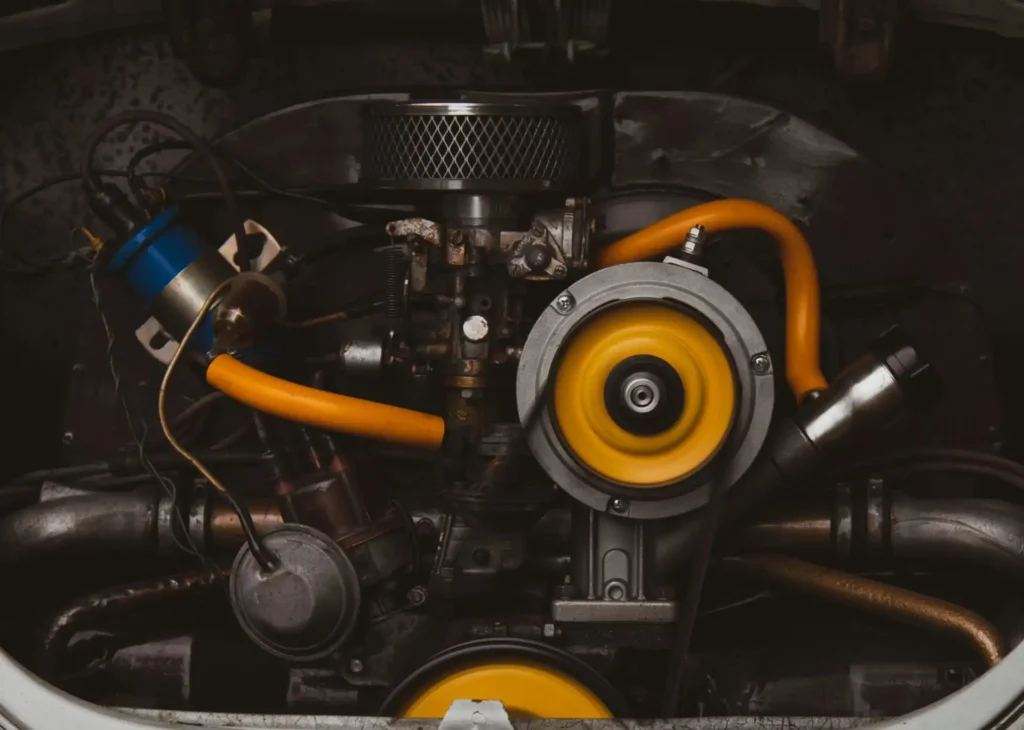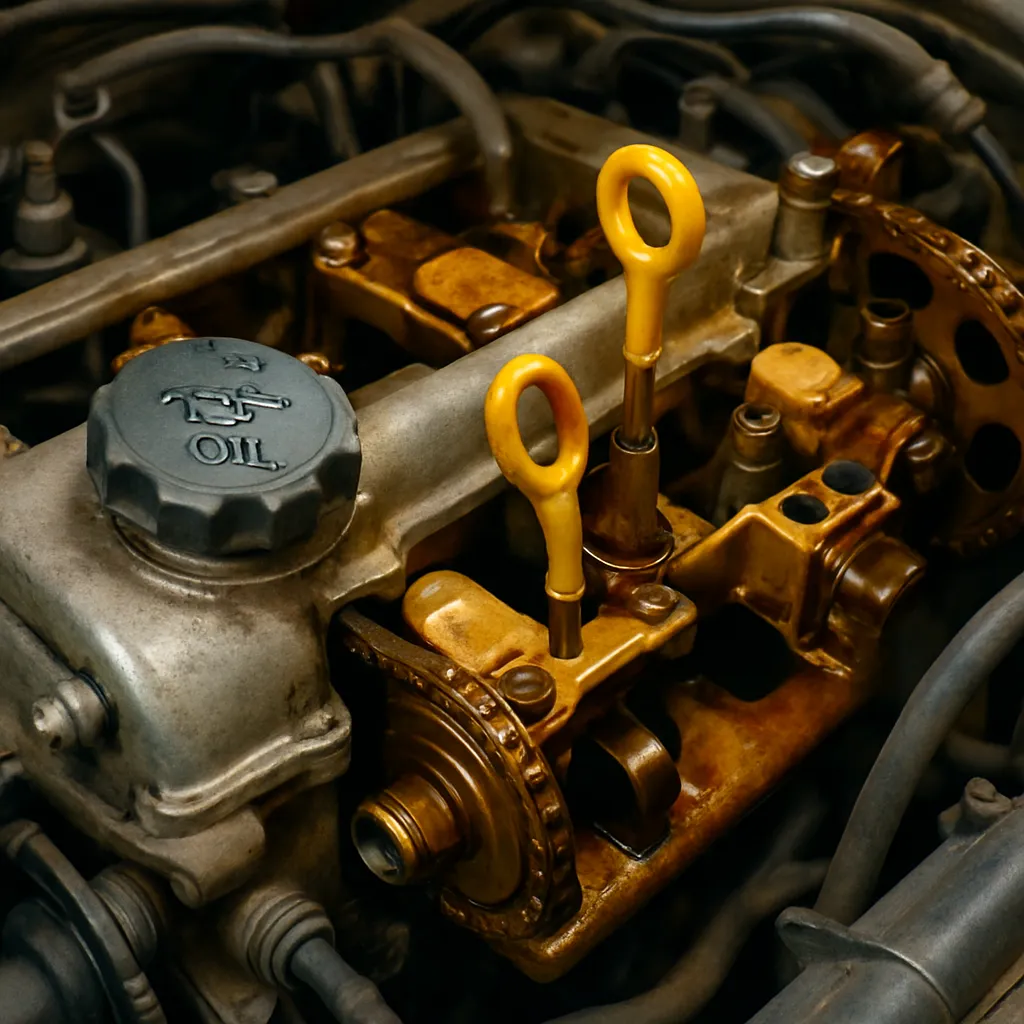Yes, low oil levels can absolutely cause a car to overheat.
Engine oil is vital for your car’s health. It lubricates, cools, and protects engine parts. But what happens when oil levels drop? Low oil can lead to overheating. This is a serious issue that can cause engine damage. Understanding the link between oil and overheating is crucial.
Many drivers overlook oil maintenance. This can result in costly repairs. Regular oil checks and changes are essential for engine longevity. Oil-related overheating can stem from various issues. These include leaks, old oil, or not changing oil on time. Each can lead to engine trouble.
In this guide, we’ll explore how oil affects engine temperature. We’ll also discuss signs of overheating and prevention tips. Stay informed to keep your engine running smoothly.
Table of Contents
ToggleHow Engine Oil Works: The Basics
Engine oil plays a critical role in your vehicle’s operation. It primarily functions to lubricate the engine’s moving parts. This reduces friction and wear, which is essential for smooth operation.
Oil also acts as a coolant. It absorbs and disperses heat generated by the engine, preventing components from overheating. This cooling function is vital for maintaining engine efficiency and preventing damage.
There are several key functions of engine oil:
- Lubrication: Reduces friction between engine parts.
- Cooling: Absorbs and dissipates engine heat.
- Cleaning: Removes contaminants and deposits from inside the engine.
- Sealing: Forms a protective film around engine parts.
Regular oil changes ensure these functions are performed effectively. Old or contaminated oil loses its ability to lubricate and cool properly. Using the correct oil type and viscosity is also crucial for optimal performance.
Understanding these basics helps you realize the importance of routine oil maintenance. It’s a simple task that can prevent significant issues down the line.

Can Low Oil Cause a Car to Overheat?
Yes, low oil levels can indeed cause a car to overheat. Engine oil is essential for reducing friction in the engine’s moving parts. Without enough oil, these parts generate excess heat.
When there is insufficient oil, the engine’s ability to dissipate heat is compromised. This can lead to the engine running hotter than normal, eventually overheating. In severe cases, the engine could seize due to the intense heat buildup.
Low oil levels can occur for several reasons. Over time, engines consume a small amount of oil. Additionally, oil leaks, often caused by worn gaskets or seals, can drastically reduce oil levels without warning.
Key reasons low oil leads to overheating include:
- Reduced lubrication increases friction and heat.
- Decreased oil volume fails to adequately cool engine parts.
- Insufficient oil leads to metal-on-metal contact and damage.
To avoid these issues, regularly check your oil level and watch for any signs of leaks. Addressing low oil promptly can prevent overheating and costly engine repairs. Always remember that maintaining proper oil levels is crucial for your engine’s health.

Other Oil-Related Causes of Overheating
Overheating isn’t only caused by low oil. Various oil-related issues can also lead to your engine running hot. Oil quality plays a significant role in maintaining engine temperature. If the oil is contaminated or old, it may not function effectively.
An oil leak is another common problem that can lead to overheating. Leaks reduce oil levels, impeding the engine’s cooling capability. When an engine runs without enough oil, metal parts may collide and generate excessive heat.
Here are some common oil-related causes of overheating:
- Old or degraded oil: Loses ability to lubricate.
- Oil leaks: Reduce overall oil levels.
- Incorrect oil viscosity: Affects how oil flows and cools.
Regularly monitoring oil levels and quality is key. Act quickly if you suspect any oil issues to prevent further damage. Oil-related overheating can lead to costly repairs, making routine checks vital.
Can Bad or Old Oil Cause Overheating?
Yes, both bad or old oil can cause overheating. Over time, oil degrades and loses its lubricating properties. This can lead to increased friction in engine components.
Old oil may also contain contaminants. Dirt and metal particles can accumulate, impeding the oil’s ability to cool the engine. Contaminated oil is less effective at heat dissipation, raising engine temperature.
Therefore, regular oil changes are critical. They ensure optimal oil quality and performance. Using the correct oil type and viscosity also helps prevent overheating. It’s crucial for reducing friction and transporting heat away from engine components.
Can Oil Leaks Lead to Overheating?
Oil leaks pose a significant risk to your engine. A leak can lead to reduced oil levels, which may cause overheating. When there isn’t enough oil, the engine can’t adequately disperse heat.
Oil leaks can originate from several sources, like worn seals or damaged gaskets. If undetected, these leaks will continue to deplete oil reserves, exacerbating the overheating risk.
Symptoms like oil puddles under your car or the smell of burning oil often indicate a leak. Promptly addressing oil leaks can prevent overheating and subsequent engine damage. Regular vehicle inspections help catch leaks early before they cause serious issues.
Signs Your Engine Is Overheating Due to Oil Issues
Identifying the signs of overheating can save your engine from severe damage. One common indicator is the dashboard warning lights. They alert you when oil levels are too low or temperature levels are high.
Another sign of oil-related overheating is unusual engine noise. When oil levels drop, metal parts may grind against each other. This generates loud, clunky sounds indicating excessive wear and heat.
Additionally, check for any visible smoke or a burning smell. Both are clear indicators that the engine is too hot. These symptoms often arise when oil is not effectively lubricating and cooling engine parts.
Watch out for these warning signs to avoid major engine problems:
- Dashboard warnings: Lights indicating temperature issues.
- Unusual noise: Grinding or knocking sounds from the engine.
- Smoke or burning: Visible smoke or strange odors.
Early detection of these signs can prevent further damage. Regular maintenance and inspections help identify potential oil issues before they lead to overheating. Keeping a close eye on symptoms ensures you address any problems promptly.

What Happens If You Drive With Low or Bad Oil?
Driving with low or poor-quality oil puts your engine at risk. Oil plays a vital role in keeping your engine parts lubricated and cool. Without it, various components can wear out quickly.
Low oil levels can lead to increased friction between engine parts. This friction not only generates excessive heat but also accelerates wear and tear. Such conditions can result in severe engine damage over time.
Using degraded or old oil has its own pitfalls. Degraded oil loses its ability to effectively lubricate and cool. This increases the likelihood of overheating and engine stress.
Here are potential consequences of driving with low or bad oil:
- Increased friction: Leads to excessive heat generation.
- Engine wear: Speeds up damage to engine components.
- Reduced efficiency: Affects fuel consumption and engine performance.
To avoid these outcomes, regularly check your oil levels and quality. Make it a habit to replace old oil with fresh, high-quality oil to maintain your engine’s health.
How to Prevent Engine Overheating From Oil Problems
Preventing engine overheating due to oil issues starts with regular maintenance. Consistent checks ensure oil levels are optimal and of good quality. This proactive approach helps avert potential issues before they begin.
Incorporate regular oil changes into your vehicle maintenance schedule. Over time, oil degrades and loses its effectiveness at lubrication and cooling. Timely replacements help maintain efficient engine performance.
Inspect for leaks often. Oil leaks can deplete oil levels rapidly, leading to increased friction and overheating. Early detection of leaks can prevent serious engine damage.
Here’s a checklist to keep your engine cool:
- Check oil levels regularly: Prevents low oil scenarios.
- Schedule regular oil changes: Keeps oil fresh and effective.
- Inspect for leaks: Addresses potential issues early.
Use the right oil: Ensure correct viscosity for your vehicle.
Employ these preventive measures to safeguard your engine. Regular oil maintenance not only extends engine life but also enhances performance, keeping your vehicle running smoothly and cool.
Frequently Asked Questions
Can low oil levels cause my car to overheat even with a full coolant reservoir?
Yes, low oil can lead to overheating despite having enough coolant. Oil lubricates engine parts, reducing friction and heat. Without proper lubrication, the engine can overheat.
What are the signs that my car is overheating due to oil problems?
Indicators include the oil warning light, increased engine noise, and a burning smell. Monitor these signs closely to avoid engine damage.
Is synthetic oil better for preventing overheating?
Synthetic oils often offer superior heat resistance and stability, protecting the engine more effectively than conventional oils. Choosing the right oil type is critical for preventing overheating.
Here’s a quick checklist for preventing overheating:
- Monitor oil level regularly
- Change oil on schedule
- Check for leaks
- Use the appropriate oil type
Regular maintenance mitigates overheating risks. Always address oil-related issues promptly to protect your engine.
Conclusion: Protect Your Engine With Proper Oil Maintenance
Maintaining your engine’s oil health is vital for preventing overheating. Frequent oil checks and timely oil changes ensure the engine runs smoothly and efficiently. Ignoring oil maintenance can lead to severe overheating and potential engine damage.
Investing time in regular maintenance pays off by extending the engine’s lifespan. Use the correct oil type and keep a watchful eye on oil levels and quality. With proper care, your engine will remain reliable and avoid overheating problems.
Hello, I’m Muhammad Awais, a Strategic SEO Specialist at Genius Agency.
My core mission is simple: to help client websites grow significantly and achieve genuine business success. I manage the full SEO process, which includes fixing technical problems, perfecting on-page content, and running high-quality link campaigns.
I enjoy solving tough ranking challenges. I use data from Google Analytics 4 and Search Console to ensure every strategy I build is based on facts and delivers solid, lasting results. My focus is on making your site a clear winner in search results.
